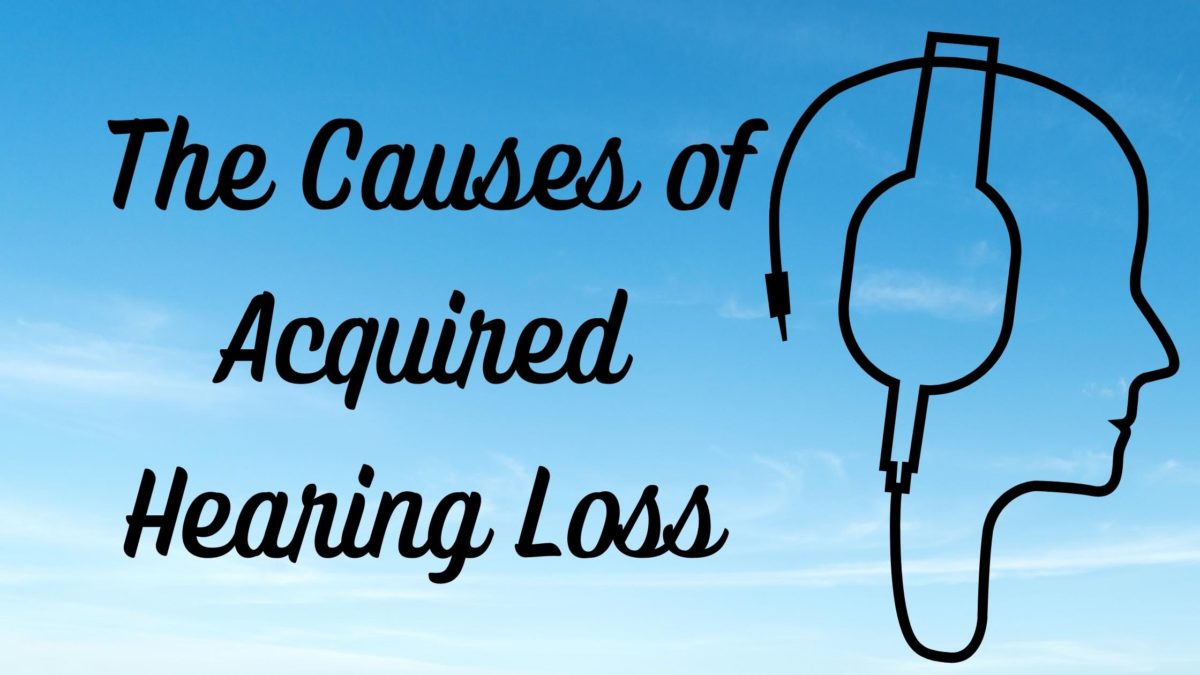Hearing loss is a public health epidemic, impacting more people than diabetes and cancer. It is estimated that 1 in 6 people have some degree of impaired hearing, which affects over 48 million people. Hearing loss is a chronic medical condition that is expected to exponentially increase. The World Health Organization estimates that over 1 billion people worldwide are at an increased risk of developing hearing loss. Understanding what causes changes to heart health and ways you can prevent these risks can profoundly enhance your overall health.
What Causes Acquired Hearing Loss
Acquired hearing loss describes impairment that happens after birth which is the most common way it occurs. It can be caused by a range of factors including the following:
- Aging: also known as presbycusis, age-related hearing loss is a predominant type of impaired hearing. 1 in 3 adults, ages 65-74 have hearing loss, and 1 in 2 adults, ages 75 and older have hearing loss. Presbycusis typically occurs gradually over time and is multifactorial, meaning that many things can contribute to it. This includes continuous exposure to loud noise, genetic factors, various health conditions that also impact older adults disproportionately and increase the risk of hearing loss, side effects of specific medications, natural changes to the ears, etc.
- Loud Noise: one of the most common causes of hearing loss is exposure to loud noise. One-time or consistent exposure to loud noise can damage the hair cells in the inner ear. These sensory cells are responsible for converting incoming sound waves into electrical signals. These signals get sent to the brain which further analyzes and assigns meaning to these signals, this is what enables us to understand what we hear. Loud noise can cause these hair cells to lose sensitivity and die over time, preventing them from performing their necessary function. Unlike other types of cells we have, sensory cells in the inner ear do not regenerate and there are no medical interventions that can replenish them. This means that any damage is permanent, resulting in hearing loss.
- Medical Conditions: Numerous medical conditions increase the risk of developing hearing loss. This includes heart disease, diabetes, and hypertension. These conditions impact blood flow and circulation throughout the body, including the ears. This can impact the way sound is absorbed and processed.
- Inner Ear Disorders: these types of conditions occur in the inner ear which houses critical components of the auditory system (hair cells, cochlea, auditory pathways, etc.). Inner ear disorders like Meniere’s disease produce excess fluid in the inner ear which can produce various symptoms and cause hearing loss.
Other causes of hearing loss include chronic ear infections, traumatic brain injuries, other types of head/neck injuries, and specific types of medications.
Common Hearing Loss Symptoms
Acquired hearing loss reduces an individual’s ability to hear and process sound. This produces a range of symptoms including:
- Tinnitus: a buzzing or ringing noise in one or both ears
- Struggling to understand speech, especially in noisy environments
- Turning up the volume on the television and other electronic devices
- Difficulty processing where sound is coming from (known as sound localization)
- Sounds are distorted or muffled
- Trouble identifying individual words
- Some sounds seem too loud
- Asking others to repeat themselves or speak louder
- Missing parts of a conversation, pretending to hear
- Lip reading to distinguish words
- Feeling exhausted after social interactions and having conversations with others
These symptoms can start as pretty mild, maybe even unnoticeable at first. This is because hearing loss typically happens gradually so it can take a longer period to notice changes to hearing. Symptoms can also be experienced chronically and be profound. Recognizing these symptoms and addressing them as soon as possible is the best way to take care of your hearing health.
Treating Hearing Loss
Our practice provides comprehensive testing to thoroughly assess hearing capacity. This includes carefully measuring hearing ability in both ears which identifies impairment and the degree of hearing loss present. After understanding the specifics of your hearing needs, discussing your lifestyle preferences, and interest in different technologies; our expert audiologist will recommend a treatment plan to effectively meet your needs. We offer individualized care to best improve your health. Contact us today to schedule an appointment!

